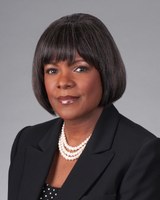BSU promotes activism, identity as theme for Black History Month
February 22, 2018
The Black Student Union, and the Division of Academic Support of Inclusive Excellence have been creating opportunities for the entire UW Oshkosh community to learn, celebrate and remember the contributions and sacrifice that African-Americans have made in this country.
Byron Adams, co-adviser of the BSU, said he tries each year to take on Black History Month from a different perspective.
“Every year we do the annual celebration of Black History Month in February,” Adams said. “Each year we come up with a theme and focus on different events and programs that relate to our theme. This year we’re looking more at activism and identity, trying to get students to learn more about inclusive excellence.”
Adams said the BSU hosts events for students to interact with each other in many different ways.
“We try to incorporate fun things for students to partake in, something that gets students to come out and interact with the organization and its members,” Adams said.

Sylvia Carey-Butler
Sylvia Carey-Butler, associate vice chancellor of Academic Support of Inclusive Excellence said while her job requires her to focus on the African-American population at UWO, she is also here for everyone on campus.
“I’m in charge of increasing the academic success of students of color, but also to insure that everyone matters,” Carey-Butler said.
Carey-Butler said celebrating Black History Month gives everyone an opportunity to celebrate and learn about the history of African-Americans in this country.
“It’s a way to celebrate the contributions of African-Americans, and its important not only in terms of educating the campus, but also educating black students here,” Carey-Butler said.
UWO BSU member Kevin Cathey said the BSU uses every opportunity to educate all students any chance they get.
“We host events, create educational and learning opportunities for all students,” Cathey said. “We educate students on voting rights, elections, current events, exclusive events that take place here at UWO. We host town halls, we collaborate; whatever it takes to get the message across.”
When thinking about the history of African-Americans on the UWO campus, “Black Thursday” is a moment that Adams is constantly reminded of.
“Every time I think about our history on campus, I look back to that Black Thursday and the Oshkosh 94,” Adams said.
Black Thursday was an event that took place in 1968 where 94 African-Americans engaged in dramatic demonstrations directed at UWO after being ignored by the University in their effort to have equal rights.
The Oshkosh 94 has a different meaning to Cathey, whose relatives were a part of Black Thursday.
“The Oshkosh 94 is much more than a moment,” Cathey said. “Black Thursday was much more than a movement. It was students standing up for their livelihoods, their right to be-to exist, to learn, to educate. The Oshkosh 94 were fighting for their right. Their battles still hold an everlasting effect on the impact of lives of black students on this campus: past, present, and future.”
Cathey said he would like to see UWO look for students of color to fill positions of great impact.
“UWO has made tremendous strides in its quest for inclusion,” Cathey said. “I would like to see students of color involved in high-impact practices and decision-making positions highlighted and embraced on this campus.”
Specifically, Cathey points to organizations like OSA as a way for students of color to represent this community and this university.
“Students of color should run for OSA government and serve on search and screen committees and talk directly with the chancellor as I have and find ways to engage and directly make a difference,” Cathey said. “Opportunities like those should not just be available. They should be exposed and highlighted throughout campus.”
Carey-Butler said she encourages people to look back and admire the sacrifice and hard work that everyone has made in this country’s history.
“I think it’s so important for everyone to look back and truly recognize the contributions people have made in this country,” Cathey said.
“For a brief period of time, we get to pause and take look at the contributions that African-Americans have made, the good and the bad.”













